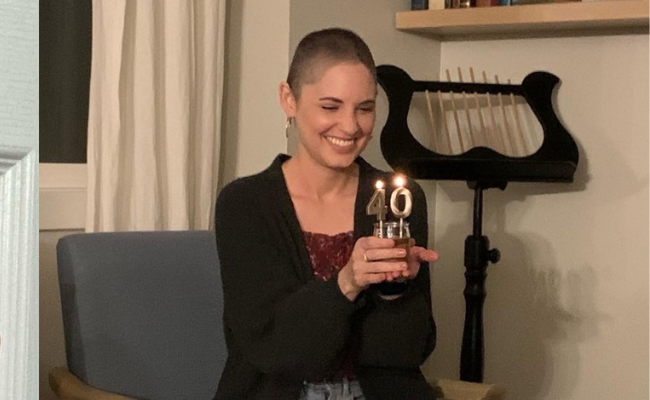
When Cheryl Airy woke up with a puffy face one summer morning in 2022, she brushed it off. It wasn’t allergy season, and she didn’t usually get them anyway. But the puffiness returned the next day—disappearing entirely by the third. That afternoon, her back seized with a sharp, stabbing pain that left her screaming when she tried to lie down.
Amidst her odd, but not too alarming symptoms, she also had a persistent cough and low-grade fever—which she thought was connected to the back pain.
The pain worsened, prompting a visit to her chiropractor, which proved some relief. But within days, her symptoms escalated to coughing up blood. “I went from no symptoms to coughing up blood in less than a week,” she recalled. “It was incredibly swift.”
The bloody cough insisted a visit to urgent care—only redirecting her to the emergency room—where tests revealed the unimaginable.
While waiting to be seen by a doctor, she independently reviewed the results through her healthcare app. “I discovered I had a mass in my chest cavity lymph nodes, which also meant I probably had cancer,” she said. “It was terrifying—but in a way, it helped. It allowed me to process it quietly and think of the questions I wanted to ask.”
Hours later, she was admitted. She couldn’t leave until her mass biopsy because the tumor’s impact on her heart. The experience she recalled as brutal. “I didn’t eat before going into the ER and I wasn’t allowed to eat before my biopsy—I get migraines from not eating. I was starving and throwing up from pain until they finally gave me morphine,” she said.
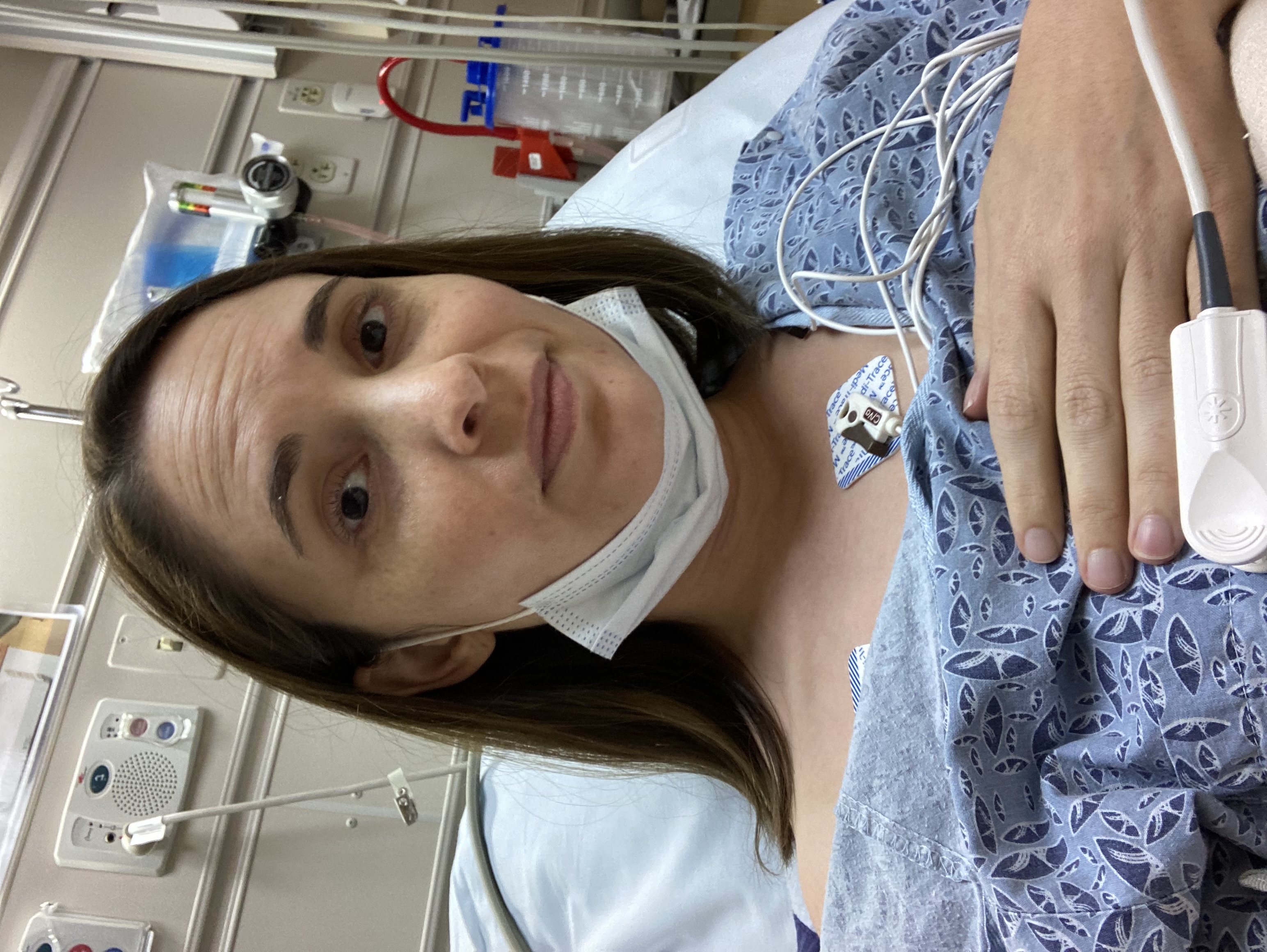
A Crash Course in Cancer
Exactly one week after her biopsy, Cheryl received the diagnosis of Primary Mediastinal B-cell Lymphoma (PMBCL), a rare and aggressive form of Non-Hodgkin's Lymphoma, most commonly diagnosed in women in their 30s. And exactly three weeks after her first symptom, she began chemotherapy with an aggressive regimen known as R-CHOP.
Cheryl’s treatment was so fast-tracked, she didn’t have time to get a PICC line placed. A PICC line is a thin, flexible tube that goes into a vein in your upper arm. It’s used to reduce the need for frequent needle sticks, allowing for administration of certain medications and fluids.
She eventually got one placed and began receiving R-EPOCH infusions through a portable pump. Her daily life shrank to a rhythm of treatment, pain management, and recovery. Severe constipation and mouth ulcers made basic functions like eating nearly impossible. She learned to manage the side effects with diet, daily walks—even with an IV in tow—and a lot of trial and error.
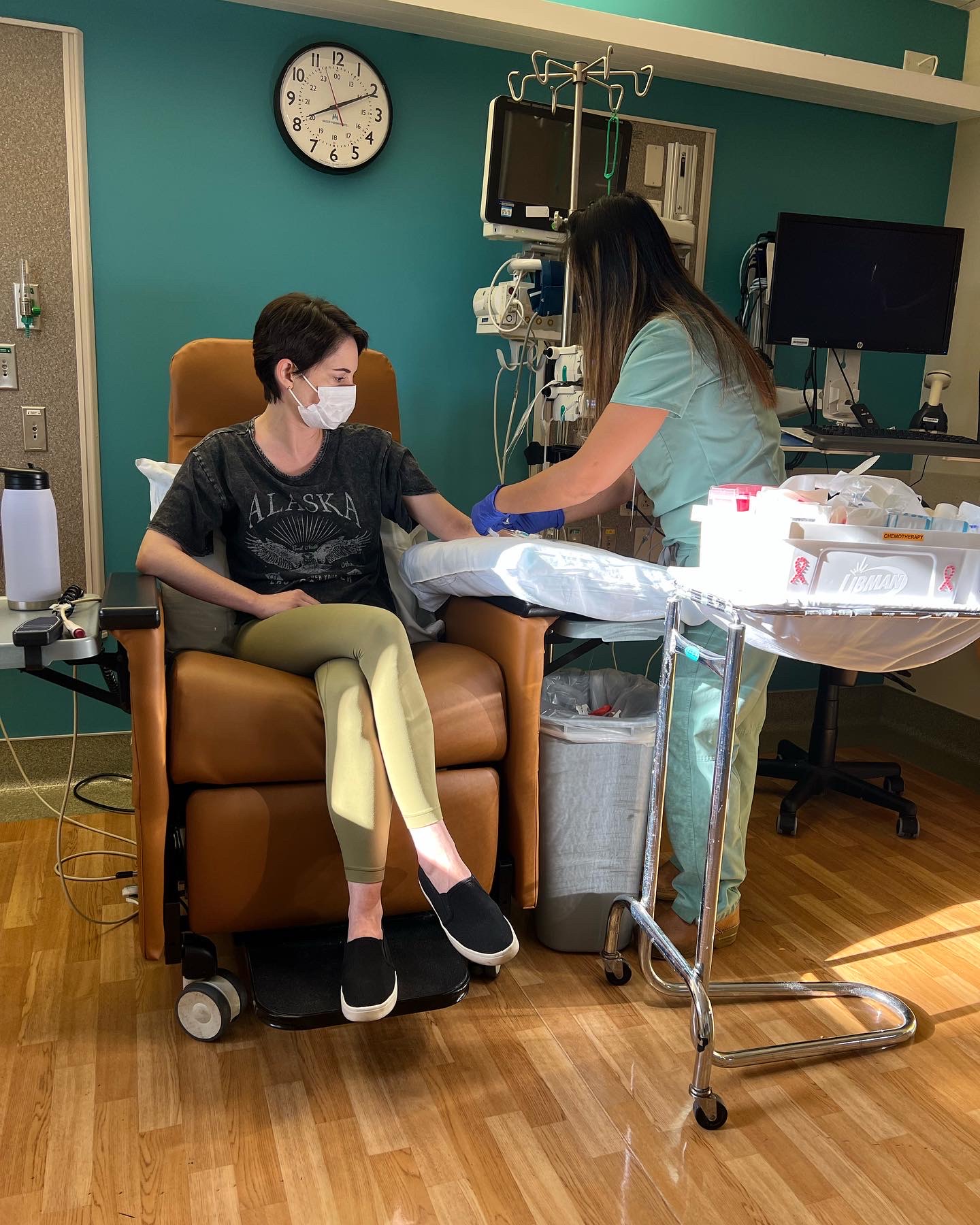
Fighting Fast—and Finding Faith
The pace of her disease journey was dizzying—but so was the support. Cheryl's dad became her “chauffeur and chemo buddy,” driving her to infusions and helping with daily tasks when walking to the mailbox felt impossible. Both her dad and stepmom supported her by letting her live with them during the months she was undergoing chemotherapy.
Friends and coworkers filled her freezer with homemade soups and protein shakes. “I couldn’t believe how people, even strangers showed up for me,” she said.
Her employer allowed her to continue working from home as she felt well enough. Something Cheryl said gave her normalcy and purpose: “Working kept me sane. It gave me something else to focus on.”
She found strength in her Christian faith—a journey shaped by the loss of her mother to cancer when she was just 11 years old. “Going through cancer myself reawakened that pain in my family,” she said. “But the peace I had was something only God could give me. I’d studied how suffering can bring us closer to God, and I felt that.”
Cheryl also found a connection online. “I didn’t see much information or support groups online about PMBCL,” she said. “I saw an Instagram post and recognized the background. A woman was going through the same rare disease, receiving the same treatment, and in the same building. I immediately reached out—we became prayer partners and friends.”
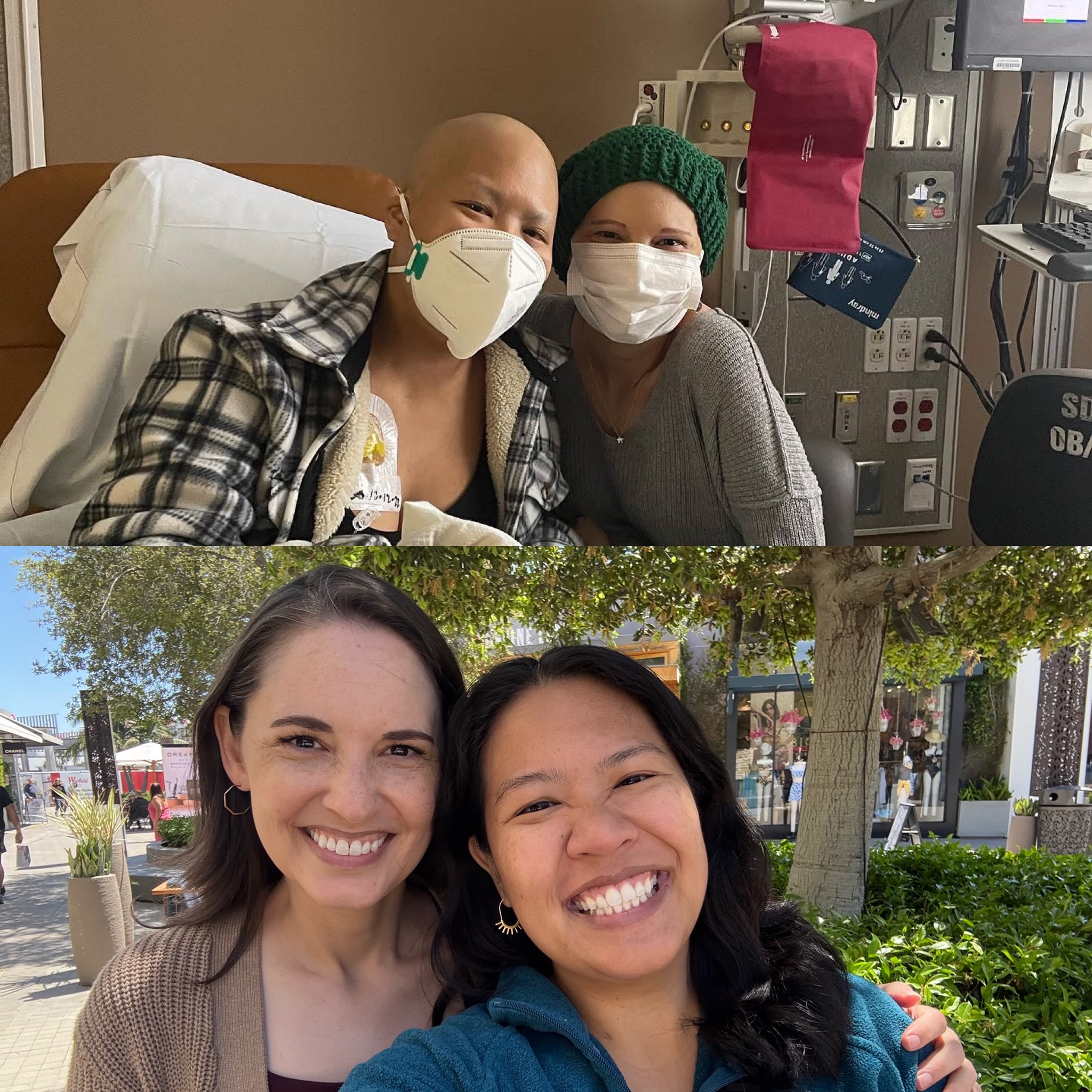
In Remission, But Not “Over It”
Her last round of chemo ended Thanksgiving week 2022. In January 2023, she received the words she’d been praying for: “no evidence of disease.”
But she’s quick to point out that remission doesn’t mean recovery is over. “The emotional weight doesn’t go away when the treatment ends,” she said. “People stop checking in. The healthcare system doesn’t always follow through with after treatment care.”
She now deals with long-term side effects. “There wasn’t enough time for egg retrieval, and fertility treatments weren’t covered by my insurance,” she said. “Hormone-blocking medication wasn’t offered.”
At 39, Cheryl was forced into perimenopause. “People don’t realize what’s taken from you,” she added. “Infertility is one of the hardest things I’ve grieved in all of this.”
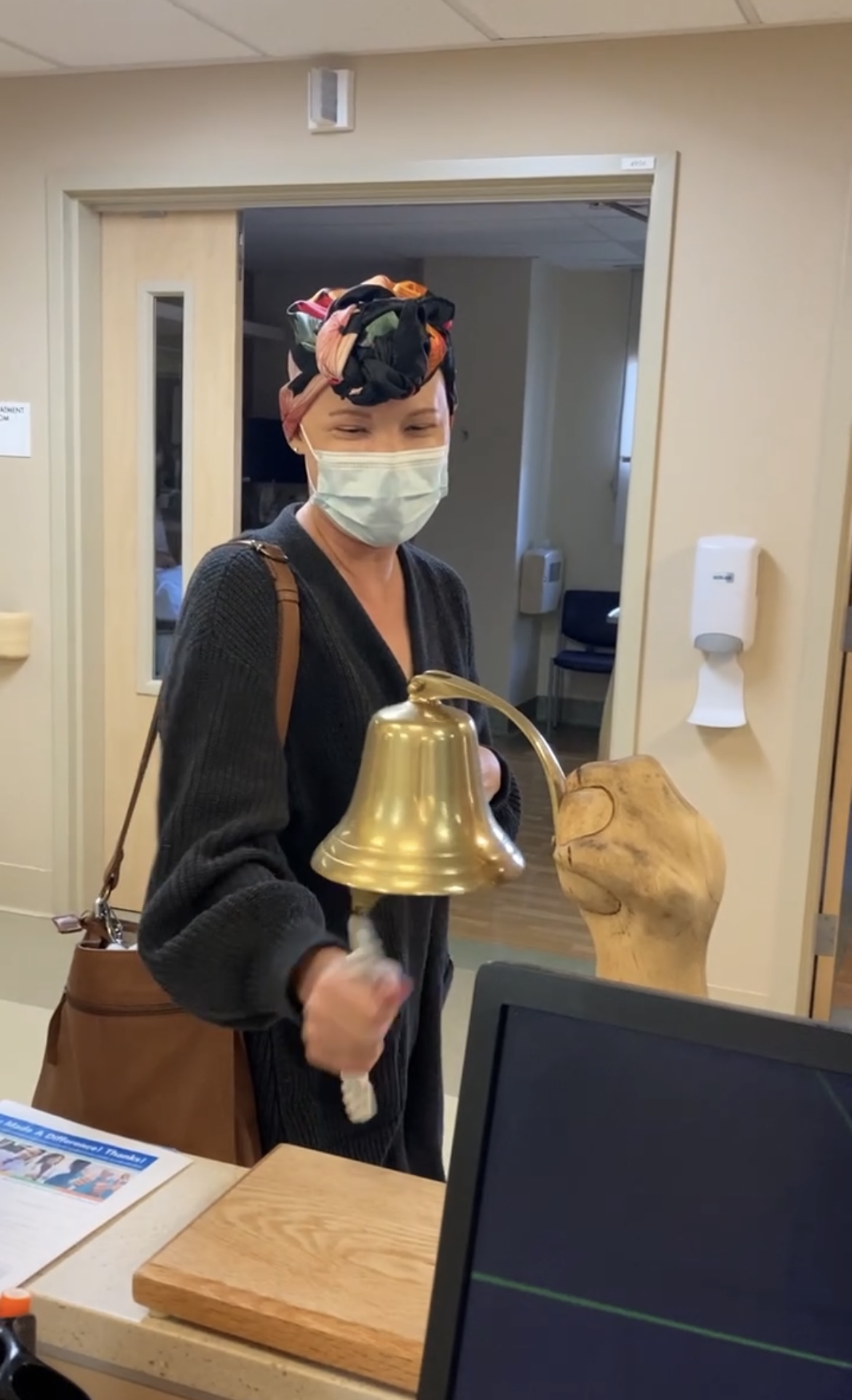
From Patient to Advocate
Her advice for others experiencing a cancer or rare disease diagnosis is twofold. For those going through the disease, Cheryl said, “Speak up about symptoms—even if they seem small. Your symptoms could mean something else. Telling your doctors can prevent long-lasting consequences.”
For friends, family, and even strangers, she advises to avoid common missteps when trying to comfort someone with cancer. “Don’t tell someone they have the ‘good kind’ of cancer. Don’t say, ‘just stay positive. This minimizes what they’re going through,” she said. “And please refrain from giving unsolicited advice about alternative treatments. You don’t have time for anything but emergency treatment.”
Instead, Cheryl says, offer your support in tangible, no-pressure ways: a kind message with no need to reply. A meal. A ride. A haircut. A gift card. A skill you can lend. “Sometimes, the quiet everyday tasks help the most,” she said.
Now in regular follow-up care with bloodwork every few months, she remains hopeful and determined to be a voice for others diagnosed with aggressive, rare cancers like PMBCL. “You get through it fast, and it’s incredibly intense,” she said. “But it never leaves you emotionally. I want to help someone else feel less alone.”